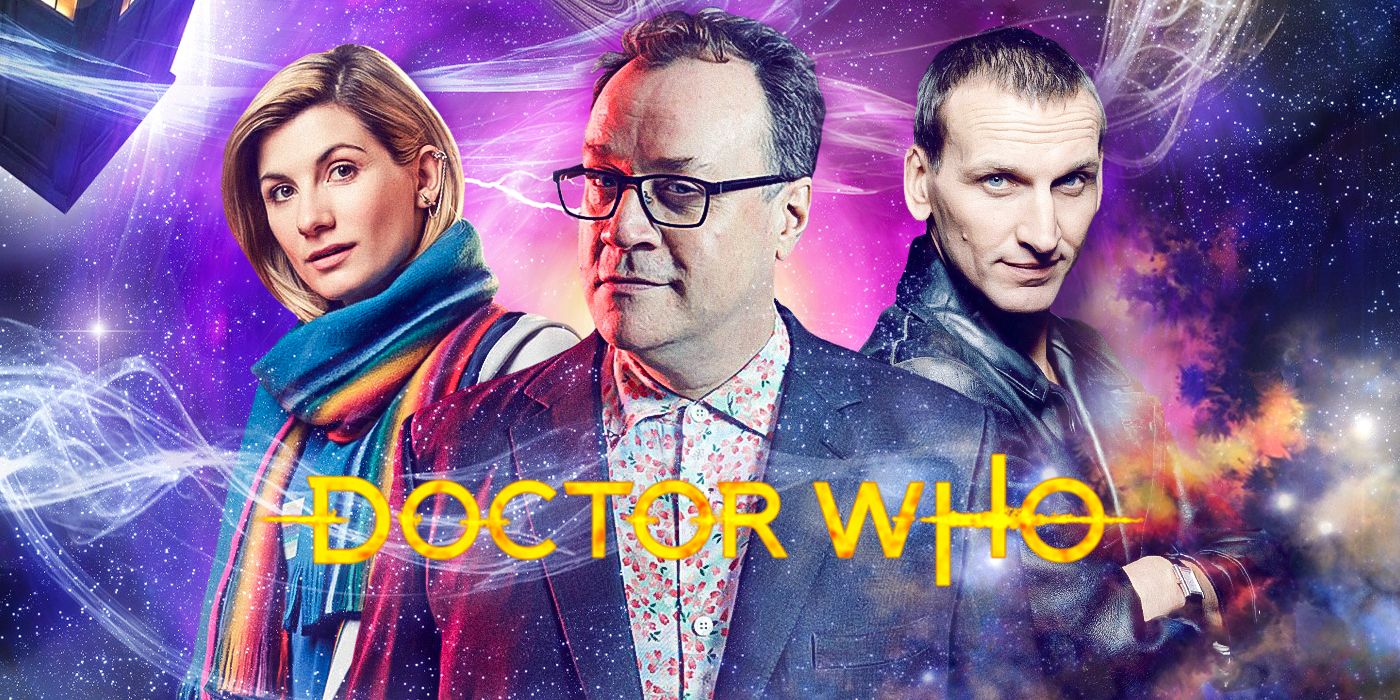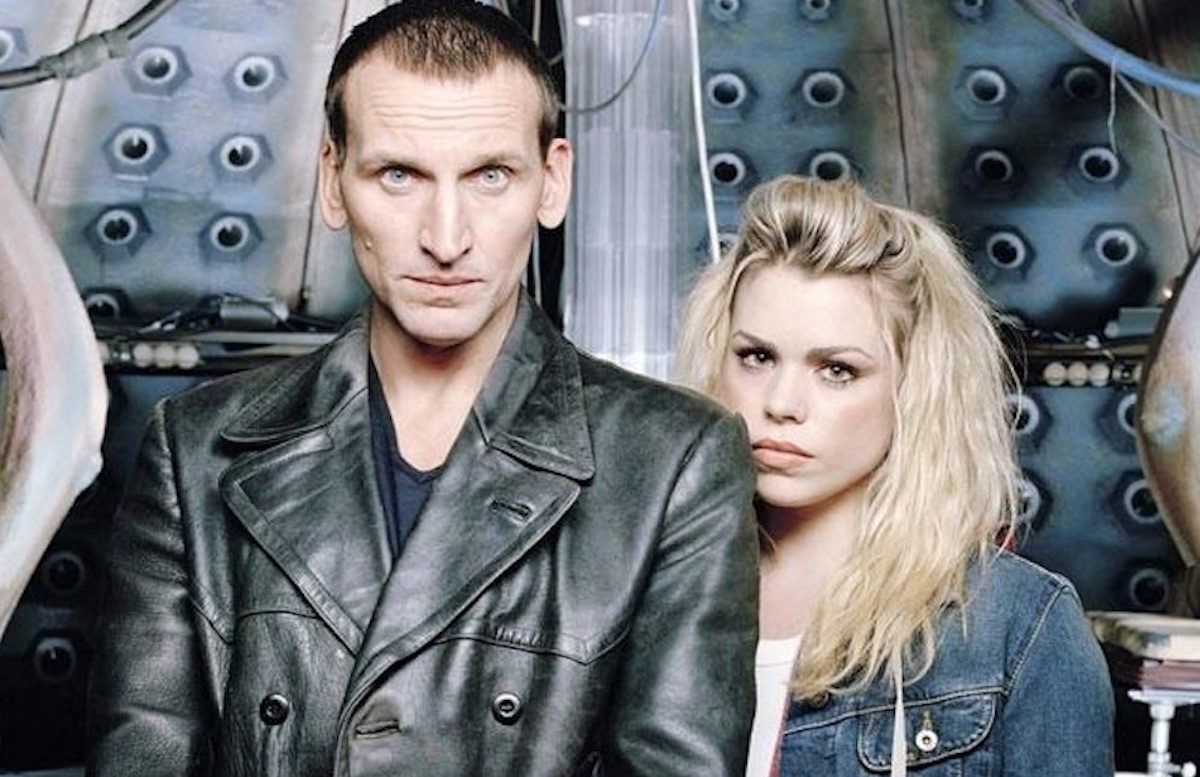Doctor Who, as a franchise, is all about semi-regular changings of the guard, as the cast and head writer are often in flux. But one of the show's biggest shifts yet is coming in 2023, as it's been announced that Russell T. Davies, the showrunner who guided the original revival with Christopher Eccleston in 2005, will be returning to oversee the show's next phase, following the departure of current showrunner Chris Chibnall.
Some history: Before coming on to bring Doctor Who to a new generation of fans, Davies was already a loud and proud fan of what Ricky Gervais and Stephen Merchant's Extras once referred to as "the crown jewel of the BBC." As just one bit of evidence, one of the main characters in his groundbreaking series Queer as Folk was an avowed Who-vian, whose fandom was celebrated throughout the series — in fact, why not go ahead and share this scene from the show's second season, in which Stuart (Aidan Gillen) demonstrates his abiding love for Vince (Craig Kelly) by proving how much he's been paying attention to Vince's favorite show:
Davies was a long-time fan, but in taking on the task of creating a 21st century Doctor Who, he was also very conscious of how a large portion of the audience would need either an introduction or a re-introduction to the (at that time) madman in a police box. The importance of this mounts up when you consider that Doctor Who, at its core, is a show for families — meaning that much of his target audience in 2005 wasn't necessarily alive for the Doctor's last prior on-screen adventure in 1996. (If you're wondering, that Queer As Folk joke is no longer technically accurate, as Paul McGann as the Eighth Doctor has been accepted as canon.)
Davies' approach to that problem was a classic solution: Build the introduction of the Doctor into the narrative, by framing the first episode from the point-of-view of a new companion named Rose (Billie Piper), whose ordinary life as a shopgirl gets literally exploded by a strange man in a leather jacket (Eccleston). Said man (whose name is the Doctor, by the way, never "Doctor Who," as everyone who has ever had the misfortune of working with me has learned by now) goes on to offer her a chance to explore all of space and time, but doesn't offer up a lot of details about himself or his past. So, over the course of the series, details about the events that led to the destruction of the Doctor's homeworld grow, while — like Rose does — we fall in love with both the Doctor and the adventures he offers us.
There are perhaps a few too many farting aliens in the first season for me to declare it one of the best seasons of television ever, but by grounding the series in Rose's point-of-view early on, and letting the Doctor be a figure of fascination to the audience, that first season of Doctor Who is a master class in how to continue a series from a modern-day perspective without losing track of what made the original worth revisiting.
Here's what's interesting about all this, though — after overseeing four seasons and a "gap year" of specials, Davies left the series, and when Steven Moffat took over as showrunner in 2010, his approach proved different in a number of respects, but he too ensured that the companion's story was always as important as the Doctor's, leading to a much more balanced feel between the characters — while the 12th Doctor period felt a little more Doctor-focused, Peter Capaldi's companions didn't feel like they lacked too much for screen time.
Unfortunately, as I've written previously, when Moffat and Capaldi passed the show along to Chibnall and new Doctor Jodie Whittaker, something unfortunate happened. Who knows how intentional this was, but as Doctor Who embraced its first-ever female Doctor, it also very much became an ensemble piece, thanks to the introduction of three full-time companions (in comparison to one or perhaps two other regulars). As interesting and inclusive as the characters of Graham (Bradley Walsh), Ryan (Tosin Cole), and Yasmin Khan (Mandip Gill) were, they sucked up all the oxygen that might have been used to let Whittaker establish her take on the character, making the Doctor a supporting character in her own goddamn show.
The upcoming Season 13 of the series (along with some additional specials in 2022) will be Whittaker and Chibnall's last, and while I personally am sad that Whittaker will be leaving, news of Chibnall's departure remains a relief because of his treatment of this all-time-great character (and anecdotally, I know I'm far from the only fan whose interest has waned over the years, for similar reasons). Yes, it would have been interesting if the next showrunner was someone who could bring a brand new new perspective to the franchise. But Davies coming back is exciting because after so many years of the companion-forward approach he originally established, Doctor Who could use a bit of course correction in the opposite direction; a reminder of just how vibrant and scary and mad and fun a character like the Doctor can be.
Plus, as Kelly Lawler at USA Today pointed out on Twitter, the Davies of 2005 is not the Davies of today — the Davies of today is better. Since leaving Who in the hands of Moffat, Davies' television work has grown even more wild, wonderful, and impressive in scope: The Emma Thompson-starring Years and Years harnessed his talents for sci-fi tales for one of this decade's most grounded and haunting near-future stories, while this spring's '80s-set drama It's a Sin was perhaps his most personal and emotional tale to date, a truly gut-wrenching and beautiful series of television. And he was Emmy-nominated for scripting the also-great period drama A Very English Scandal! The best thing you can ever hope for any artist is that their best work is still ahead of them, and in Davies' case his writing has only continued to evolve and grow with time and experience.
Davies coming back isn't just exciting because of his credentials — but because the last time he took on the challenge of revitalizing the series for a new generation, the results were an overwhelming success. In 2023, the world may need a little help with falling in love with a new Doctor. When it comes to that very specific task, there may be no one better for the job than him.
Doctor Who Season 13 is set to debut this fall on the BBC and BBC America.



